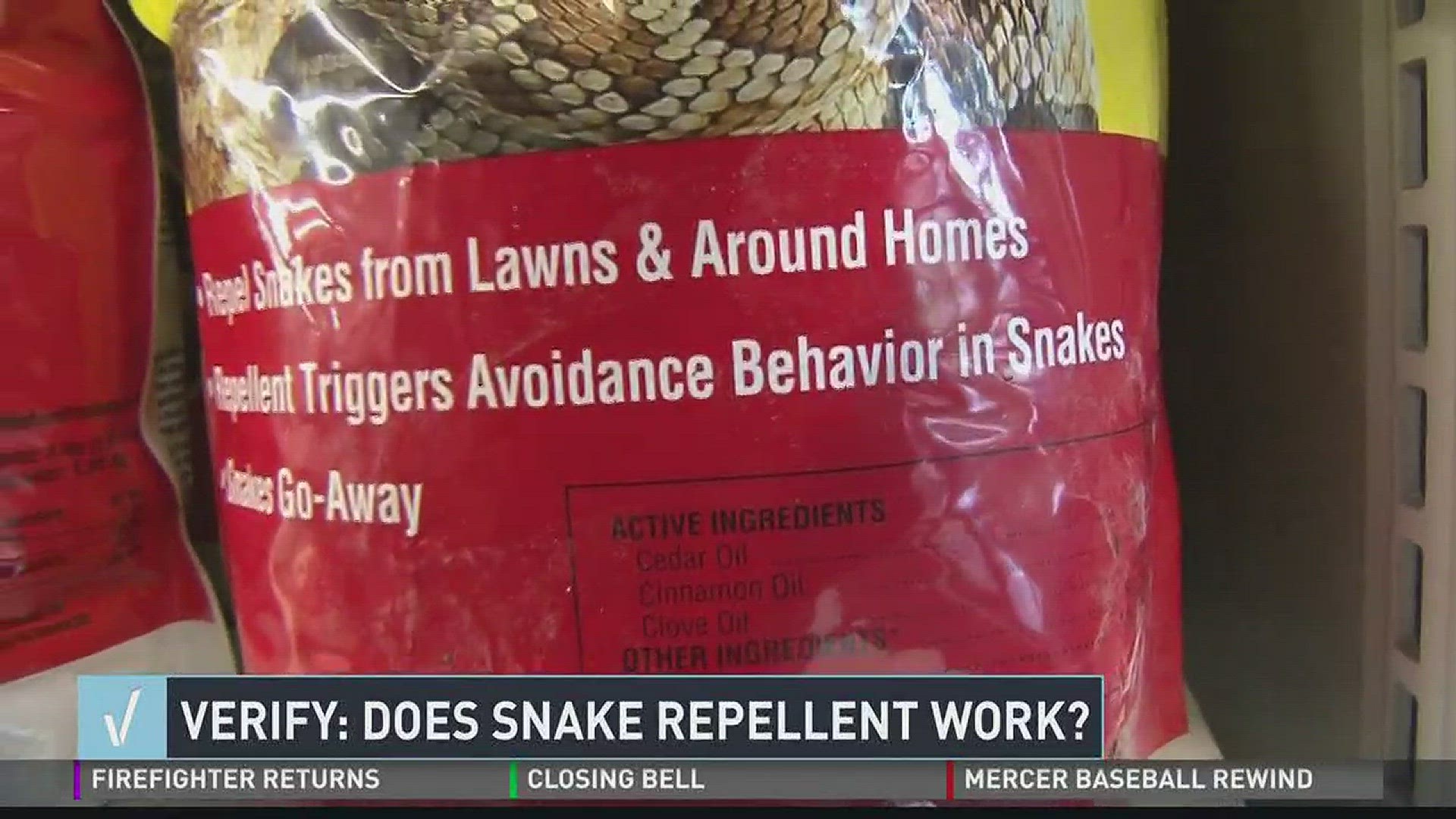You may have seen our story online about a snake wrangler getting bitten twice recently by some angry reptiles. It happened to Jason Clark, owner of South Eastern Reptile Rescue.
Afterwards, Clark made comments to us about snake repellent, which you can find in many hardware or outdoor supply stores.
Clark's take is that repellent doesn't work.
Gabrielle Dawkins set out to Verify.
Georgia’s Poison Control Center reported a major uptick in bites earlier this year than in previous years.
That's probably what's causing people to go into the stores and buy snake repellent.
Senior wildlife biologist John Jensen says the repellent doesn’t work.
“I'm convinced they don't work how people want them to work to keep them away from their yard, to keep them totally away from their house,” said Jensen.
Jensen says in a confined setting, maybe.
“The main product in a lot of these snake repellents are the same things that moth balls are made out, naphthalene, so it relies on the smell, but if you put that out on a landscape like this, the smell is not contained,” says Jensen.
He says in Central Georgia we have around 40 species of snakes, but only 6 species are venomous, one of which snake wrangler Jason Clark says he handles from time to time.
“Copperheads are not aggressive snakes,” says Clark.
While he says they're not combative, he knows that the repellent won’t keep those slithering creatures away.
“Repellents do nothing more than make you feel a little bit better about the situation,” says Clark. “They don't actually repel snakes. Snake repellent, in my opinion, is a complete waste of time.”
And what about the home remedies. Do they work?
“A lot of people we see putting moth balls, lime sulfur, all of these home remedies, and it does not work. If you're not seeing snakes, it's nothing to do with those chemicals that you're putting out,” says Clark.
We verified that snake repellent does not work.

